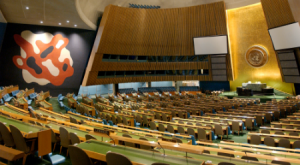The report presents an overview of existing digital divides and policy options to promote meaningful connectivity for all, in particular those living in poverty. It is then focused on how information and digital technologies are used by Governments to enhance the efficiency, effectiveness and inclusiveness of social policies, by drawing references from the fields of social protection, health care and education.
The report provides the following considerations and recommendations to ensure that the integration of information and digital technologies into social policies is guided by broader development objectives, favours inclusion and social equity, protects human rights and benefits all, while accelerating progress towards the achievement of the 2030 Agenda for Sustainable…
 Welcome to the United Nations
Welcome to the United Nations
 The
The